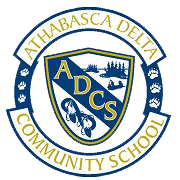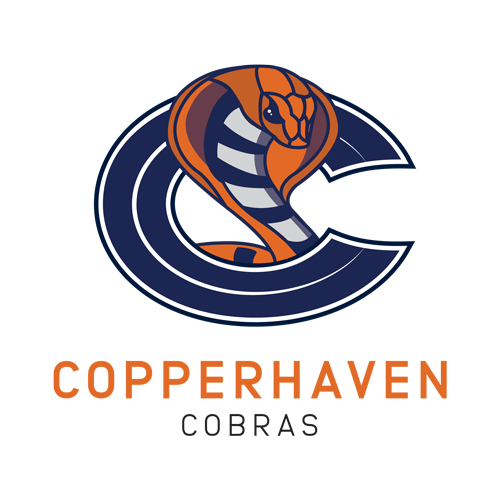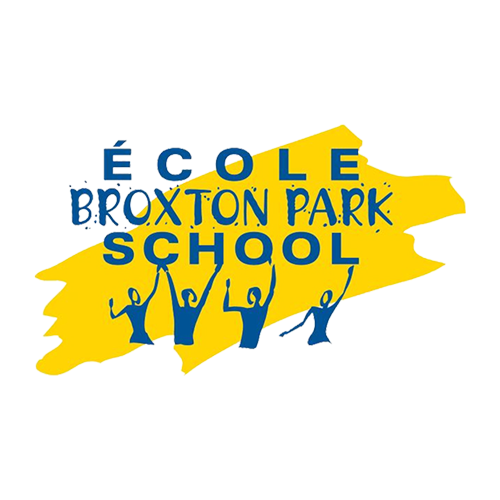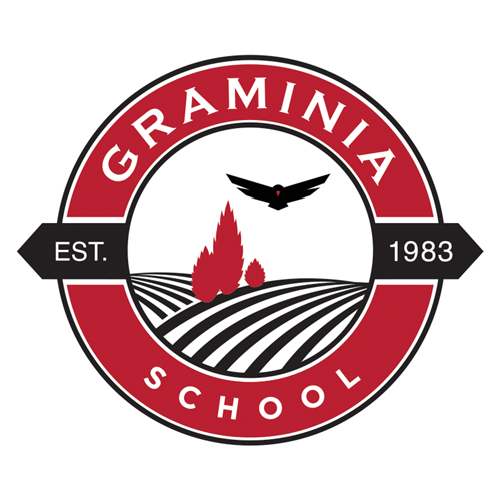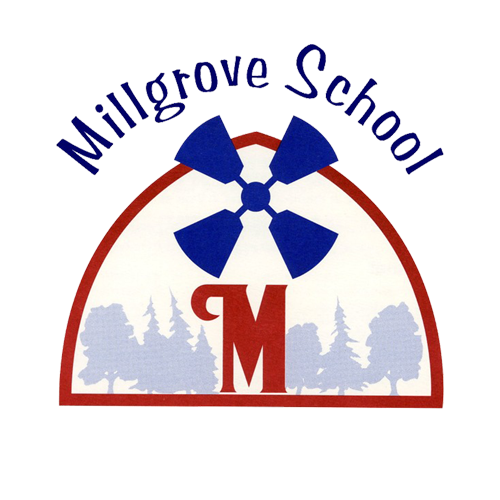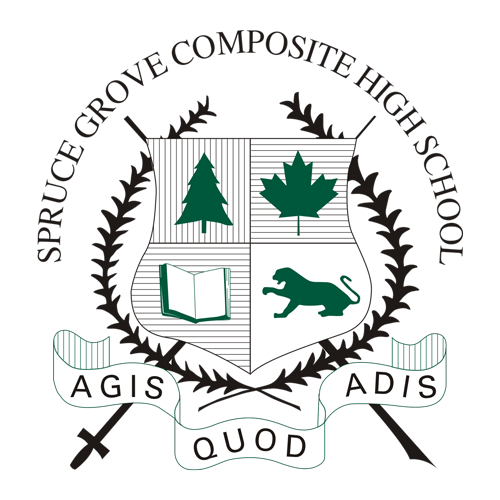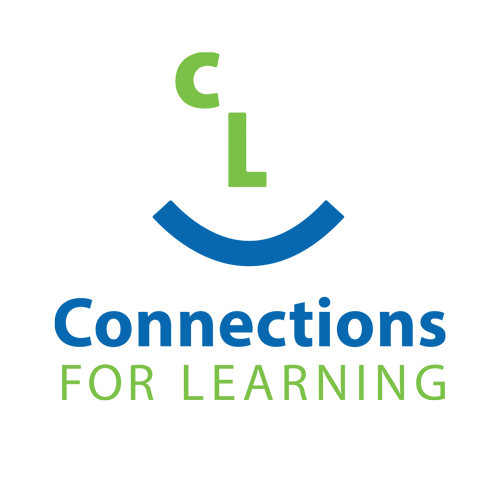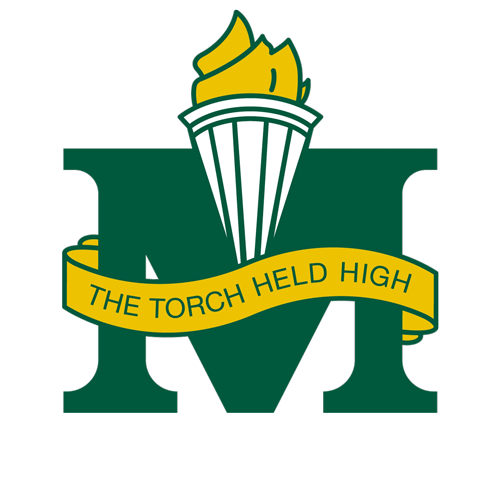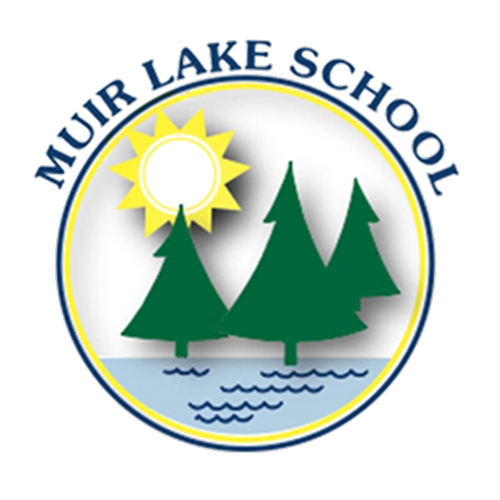7: Board Operations
Policy
The Board’s ability to discharge its obligations in an efficient and effective manner is dependent upon the development and implementation of a sound organization design. In order to discharge its responsibilities to the electorate of the Division, the Board shall hold meetings as often as is necessary to deal adequately with its business. The Board adopts, amends and rescinds policies so that the business of the Board can be conducted in an orderly and efficient manner.
The Board has a fundamental obligation to preserve, and enhance, the public trust in education, generally, and in the affairs of its operations in particular. The Board demonstrates the belief that having members of the public make presentations at Board meetings can enhance public interest; therefore, Board meetings shall be open to the public, to the greatest extent possible. and in a manner that encourages the general publice to contribute to the educational process.
Wards
As per the Education Act (s. 76), the Board provides for the nomination and election of trustees within the Division by wards (electoral subdivisions). A copy of the Parkland School Division Electoral Ward Bylaw is attached as Appendix 7.1 of this policy.
1. All wards (electoral subdivisions) shall comprise all those lands as outlined in Policy 7 Appendix 7.1.
2. The number of trustees to be elected in each ward is as follows:
2.1. One (1) trustee from each of wards 1, 2, 3 and 4.
2.2. Three (3) trustees from ward 5, elected at large.
3. The provisions of the Local Authorities Election Act respecting the election of trustees shall apply to every election in each ward.
4. If a vacancy occurs in the membership of the Board during the four (4) years following an election, a by-election may be held, as detemined by the Board.
4.1. If two (2) vacancies occur prior to the fourth year of the term of office, a by-election shall be held.
Swearing-In Ceremony
5. An official swearing-in ceremony shall be scheduled following confirmation of trustee election results in a general election year.
5.1. Each trustee shall take the oath of office or make an affirmation as called upon in accordance with the agenda.
5.2. Special swearing-in provisions shall be made for a trustee taking office following a by-election.
Organizational Meeting – Schedule
6. The first official meeting of the Board, following a general election, shall be the Organizational Meeting.
7. During an election year, the Organizational Meeting shall be held no later than four (4) weeks following the election day, when there has been a general election.
8. With the exception of election year, the Organizational Meeting of the Board shall be held annually at the June Board meeting.
8.1. The decisions of the June Organizational Meeting shall be in effect for September 1 of each year.
Organizational Meeting – Process
9. The Corporate Secretary of the Board shall give notice of the Organizational Meeting to each trustee as if it were a special meeting.
10. The Corporate Secretary of the Board shall call the meeting to order and act as Chair of the meeting for the purpose of the election of the Board Chair.
11. Upon election as Board Chair, the Board Chair shall take the oath of office or make an affirmation and preside over the remainder of the Organizational Meeting.
11.1. The Board Chair shall normally be elected for a period of one (1) year.
12. The Organizational Meeting shall, in addition, attend to the following organizational items by approved motions(s):
12.1. The Vice-Chair shall be elected by a majority vote;
12.2. The schedule (date, time and place) for regular meetings and any additional required meetings shall be established;
12.3. The creation of such standing committees of the Board as deemed appropriate, shall proceed with the appointment of members;
12.4. The appointment of Board representatives to the various Boards or committees of organizations or agencies where the Board has regular representation, shall proceed as deemed appropriate;
13. The Secretary Treasurer shall review trustee conflict of interest stipulations and determine any disclosure of information requirements and address other organizational items as required.
Regular Meetings
14. A quorum, which is a simple majority of the number of trustees, must be present for every duly constituted meeting.
15. Regular Board meeting dates and times shall be as established at the annual Organizational Meeting.
16. All meetings will ordinarily be held in the Division Office in Stony Plain.
Trustee Absences
17. All trustees shall notify the Board Chair or the Superintendent if they are unable to attend a Board meeting.
18. All trustees who are absent from three (3) consecutive regular meetings shall:
18.1. Obtain authorization by resolution of the Board to do so; or
18.2. Provide to the Board Chair evidence of illness in the form of a medical certificate respecting the period of absence; and
18.3. Failure to attend may result in disqualification.
19. If both the Board Chair and Vice-Chair, through illness or other cause, are unable to perform the duties of the office, or are absent, the Board shall appoint from among its members an acting Board Chair, who, on being so appointed, shall have all the powers and shall perform all the duties of the Board Chair during the Board Chair’s and Vice-Chair’s absence or inability to act.
20. Regular meetings of the Board shall not be held without the Superintendent and/or designate(s) in attendance, unless the Superintendent’s employment contract is being discussed.
Special Meetings
Occasionally, unanticipated or emergent issues require immediate Board attention and/or action.
21. Special meetings of the Board shall only be called when the Board Chair, the majority of trustees, or the Minister is of the opinion that an issue must be dealt with before the next regular Board meeting.
22. A written notice of a special meeting shall be sent to all trustees by registered mail (at least 7 days before the date of the meeting), or personally served to the trustee, or a responsible person at the trustee’s residence, or by electronic means (at least 3 days before the date of the meeting).
23. Notwithstanding section 21. and 22., a special meeting may be held without notice being given under this section if every trustee agrees to waive the requirements of sections 21. and 22.
24. The date, time and place of the special meeting, and the nature of the business to be transacted, must be clearly specified in the notice of the special meeting.
25. Unless all trustees are present at the special meeting, no other business may be transacted; and
25.1. Items may be added to the agenda only by the unanimous consent of the entire Board.
26. Special meetings of the Board shall be open to the public recognizing that specific agenda matters may be held in-camera.
27. Special meetings of the Board shall not be held without the Superintendent and/or designate(s) in attendance, unless the Superintendent’s employment contract is being discussed.
In-Camera
As per the Education Act (s.64), there are times when public interest is best served by private discussion of specific issues through in-camera sessions.
28. The Board may, by resolution, schedule an in-camera meeting at a time or place agreeable to the Board, or recess a meeting in progress for the purpose of meeting in-camera; and
28.1. Such resolutions shall be recorded in the minutes of the Board, and shall specify those individuals, in addition to trustees and the Superintendent, who are eligible to attend.
29. The Board may convene in-camera only to discuss matters of a sensitive nature, including:
29.1. Individual matters; either
29.1.1. A particular student(s); or
29.1.2. A particular employee(s);
29.2. Matters relating to negotiations;
29.3. Acquisition/disposal of real property;
29.4. Matters relating to other government agencies, such as provincial ministries or municipalities;
29.5. Litigation brought by or against the Board; and/or
29.6. Other matters to be considered in private for the public interest, as determined by a majority of the trustees in attendance.
30. In-camera sessions shall be closed to the public and press.
31. The Board shall only discuss the matter(s) that gave rise to the in-camera meeting.
32. Board members and other persons attending the session shall maintain confidentiality and shall not disclose the details of the discussion at such sessions.
33. In-camera minutes shall be marked as privileged and confidential.
34. The Board shall, during the in-camera session, adopt only such resolution and/or recommendation as is required to re-convene the Board in an open, public meeting, with due consideration to protection of personal or proprietary information.
Agenda for Regular Meetings
35. The Superintendent is responsible for preparing an agenda for Board meetings in consultation with the Board Chair and Vice-Chair.
36. The order of business at a regular meeting shall generally include the following:
36.1. Call to Order Items, including:
36.1.1. A Land Acknowledgement statment,
36.1.2. The National Anthem,
36.1.3. A call for personal reflection,
36.1.4. Trustee Announcements,
36.1.5. Request for changes to the Agenda,
36.1.6. A call for the motion to approve the Agenda;
36.2. Approval of Minutes;
36.3. Business Arising from the Minutes;
36.4. Public Participation;
36.4.1. Presentation,
36.4.2. Delegation
36.4.3. Question Period.
36.5. Board Chair Report;
36.6. Superintendent Report;
36.7. Action Items;
36.8. Administration Reports;
36.9. Trustee Reports;
36.10. Future Business items, including:
36.10.1. Meeting Dates,
36.10.2. Notice of Motion,
36.10.3. Topics for Future Agendas,
36.10.4. Requests for Information,
36.10.5. Response to Requests for Information;
36.11. In-Camera items, as permitted in this policy;
36.12. Action in Response to In-Camera;
36.13. Adjournment.
37. Items scheduled for a specific time shall be clearly identified on the agenda.
38. The agenda shall be supported by copies of letters, reports, contracts and other materials as are pertinent to the business that will come before the Board and will be of value to the Board in the performance of its duties.
39. Each action item shall include a clear recommendation.
40. Items may be placed on the agenda in one of the following ways:
40.1. By notifying the Board Chair or Superintendent at least ten (10) calendar days prior to the Board meeting;
40.2. By notice of motion at the previous meeting of the Board (this may be waived as per s. 51.3);
40.3. As a request from a committee of the Board;
40.4. Emergent items that require Board action may arise after the agenda has been prepared; and/or
40.5. Changes to the agenda may be made by a majority of those present.
41. The agenda package, containing the agenda and supporting information, shall be provided to each trustee five (5) calendar days prior to the Board meeting and shall be posted on the Division website and be available in the Division Office;
41.1. The Board shall follow the order of business set by the agenda unless the order is altered by agreement of the Board.
41.2. During the course of the Board meeting, the majority of trustees present may amend the agenda to place items before the Board for discussion and subsequent action.
Minutes for Regular or Special Meetings
42. The Board shall maintain and preserve, by means of minutes, a record of its proceedings and resolutions.
43. The minutes shall record:
43.1. The date, time and place of meeting;
43.2. The type of meeting;
43.3. The name of presiding officer;
43.4. The names of those trustees and senior administration in attendance (excused trustee absences indicated as regrets; unexcused absences recorded as absences);
43.5. The approval of preceding minutes;
43.6. All resolutions and amendments;
43.7. The names of persons making the motions;
43.8. The points of order and appeals;
43.9. Approved appointments;
43.10. The receipt of reports of committees;
43.11. The recording of the vote on a motion or amendment (when requested pursuant to the Education Act); including:
43.11.1. Any trustee declaration pursuant to the Education Act;
43.12. The times of departures and re-entries for trustees during a meeting; and
43.13. The time of adjournment.
44. The minutes shall be prepared and reviewed as directed by the Superintendent, prior to submission to the Board.
45. Minutes shall be considered an unofficial record of proceedings until such time as approved through resolution of the Board.
45.1. Approved minutes shall be deemed to be the official and sole record of the Board’s business.
46. The Superintendent or designate shall ensure, upon acceptance by the Board, that appropriate signatures are appended to each page of the minutes.
47. The Superintendent or designate shall establish and maintain a file of all Board minutes.
48. As part of its ongoing effort to keep staff and the public fully informed concerning its affairs and actions, the Board expects the Superintendent to institute and maintain effective and appropriate procedures for the prompt dissemination of information about decisions made at all Board meetings.
49. The approved minutes of a regular, organizational, or special meeting shall be posted to the website as soon as possible following approval.
49.1. The Superintendent or designate shall be responsible for the distribution and appropriate posting of approved minutes.
50. Each standing or ad hoc committee shall maintain records of the proceedings.
50.1. Once approved by the committee Chair, the minutes shall be presented to the Board for approval.
Motions
51. A notice of motion serves the purpose of officially placing an item on the agenda of a future, regular meeting; giving notice to all trustees that an item shall be discussed while also providing time for consideration and preparation for the motion; notably,
51.1. A notice of motion section shall exist as a standing item on regular Board meeting agendas to provide trustees an opportunity to speak to, and suggest a motion for, future consideration for action;
51.2. Unless suggested for an alternate, later Board meeting, the motion shall be brought forth at the next scheduled meeting of the Board;
51.3. The mover may ask the Board to “waive notice of motion” so that the debate and vote can happen immediately;
51.4. A notice of motion can only be waived by a unanimous decision of the Board; and
51.5. There is no debate on a notice of motion.
52. Motions may be put forward by any trustee, including the Board Chair.
53. Motions do not require a seconder.
54. A Board motion or a recommendation from administration must generally be placed before the Board prior to any discussion taking place on an issue.
Speaking to a Motion and Discussion
55. The custom of addressing comments to the Board Chair is to be followed by all persons in attendance.
56. Once a motion is before the Board, and until it is passed or defeated, all speakers shall confine their remarks to the motion or to the information pertinent to the motion.
57. The mover of a motion speaks first and thereafter every trustee shall have an opportunity to speak to the motion before any trustee is allowed to speak a second time.
58. Whenever the Board Chair wishes to speak on a motion, the Chair is temporarily vacated and the ViceChair presides.
59. The Board Chair shall normally speak just prior to the last speaker.
60. The mover of the motion will be invited to be the last speaker to the motion, unless debate is closed by resolution.
61. As a general guide, a trustee should not speak longer than five (5) minutes on any motion.
61.1. The Board Chair has the responsibility to limit the discussion by a trustee when such a discussion is repetitive or digresses from the topic at hand, or where discussion takes place prior to the acceptance of a motion.
62. No one shall interrupt a speaker, unless it is to ask for important clarification of the speaker’s remarks, and any such interruption shall not be permitted without permission of the Board Chair.
63. Should a trustee arrive at the meeting after a motion has been made and prior to taking a vote, the trustee may request further discussion prior to the vote.
63.1. The Board Chair shall rule on further discussion.
64. A trustee may require the motion under discussion to be read at any time during the debate, except when a trustee is speaking.
Voting on the Motion
65. Only Trustees shall vote on a motion or amendment.
66. All votes shall be recorded, and the minutes of every regular scheduled Board meeting shall indicate the names of each trustee present, and whether the trustee voted for, or against, the motion.
67. The Board Chair, and all trustees present, unless excused by resolution of the Board, or by the provisions of the Education Act, shall vote on each question; notably:
67.1. Each question shall be decided by a majority of the votes of those trustees who are present; and
67.2. A simple majority of a quorum of the Board shall decide in favour of the question;
67.2.1. In the case of an equality of votes, the question is defeated; and
67.2.2. A vote on a question shall be taken by open vote, expressed by show of hands, except the vote to elect the Board Chair or Vice-Chair, which shall occur through a secret ballot process.
68. Information reports may be used to communicate factual data or knowledge about a particular circumstance, event or activity that may be of pertinent interest to the Board; notably:
68.1. Questions and comments related to the information are permitted, but no decisions are required or expected; and
68.2. These items shall only require a written acknowledgment in the recorded minutes that they were received as information only.
Debate
69. In all debate, any matter of procedure in dispute shall be settled, wherever possible, by reference to Robert’s Rules of Order; however,
69.1. If Robert's Rules or Order proves inadequate, then procedure may be determined by resolution.
Public Participation at Board Meetings
The Board is committed to providing opportunities for the public to engage directly with trustees during a regular Board meeting to provide information regarding agenda items with transparency, and to hear a presentation or delegation regarding a specific matter pertaining to governance.
There are different ways in which stakeholders can engage with trustees during a Board meeting. These include:
- Presentations,
- Delegations,
- Question period.
Public participation at a Board meeting shall be considered by the Board Chair, as long as the engagement is safely and respectfully conducted under the guidelines set forth in Board Policy 7: Board Operations and the Education Act (s.64(1),(2), and (3)), and shall not disrupt the regular business of the Board meeting agenda.
Presentations
The Board may welcome student, staff and community presentations for educational purposes and program information. Presentations are communicated in advance according to the timelines indicated below and are included as part of the Board's meeting agenda.
70. The notice, the summary and the names of the presenters shall be included in the agenda for the meeting.
71. Presenters will be allotted a total of fifteen (15) minutes for presentation, followed by up to ten (10) minutes for trustee questions.
Delegations
The Board may allow delegations on educational matters by individuals or groups from the community at its meetings and may direct questions of clarification to delegations.
72. The Superintendent shall ensure that delegations wishing to appear before the Board have pursued all avenues of resolution (where appropriate) prior to requesting an opportunity to appear before the Board.
72.1. The Superintendent shall provide the delegation with a copy of the Board policy excerpt regarding public participation at Board meetings.
73. The delegation shall provide the Superintendent five (5) business days’ written notice of intent, prior to the regular Board meeting at which they wish to appear; the notice shall include a written brief articulating the matter.
74. The delegation shall appoint not more than two (2) persons to speak on its behalf at the meeting and to respond to questions from the Board.
75. The notice, the summary and the names of persons in the delegation shall be included in the agenda for the meeting.
76. The delegation will be allotted a total of fifteen (15) minutes for presentation, followed by up to ten (10) minutes for trustee questions.
77. If a decision is required in response to the delegation, the Board will render its decision at a subsequent meeting and in a timely manner.
77.1. The Board Chair and the Superintendent may jointly agree to waive the foregoing requirements in special circumstances, such as where the health and/or safety of students and/or staff are of concern.
Question Period
78. A Question Period of no more than fifteen (15) minutes duration shall be set on the agenda of each Regular Meeting.
79. The Question Period is intended to enable the public to obtain claritying information regarding a current or past agenda item from the Board.
80. The Question Period is not to be used as a political forum, or for furthering presentations by delegations, or to deal with matters that should properly be dealt with through other channels.
81. The Board may consider questions brought forward not pertaining to the current or past agendas.
82. Questions related to individual trustees, staff or students of Parkland School Division will not be recognized.
83. Persons directing questions to the Board at a regular meeting shall do so in writing on the form provided or in advance to the Board's email address (Board@psd.ca). Each individual shall be limited to one question, and one follow up question on the response to that question, until the time duration of the Question Period has expired.
83.1. If the meeting is being held in-person and the persons wishing to ask questions are present, the Board Chair shall identify the questioner or request the questioner identify themselves and ask their question to the Board Chair.
83.2. If the meeting is being held electronically, persons wishing to ask questions shall email their question to the Board's email address to be read by the Board Chair and addressed accordingly.
84. The Board Chair shall rule on any question which is placed, as to whether the answer will be either verbal or written.
85. No one shall ask the same question at any one meeting when the Board Chair rules that the question has been answered.
86. The Board Chair shall rule on when a question has been given sufficient time and ask that the next question be placed.
87. Should a question be asked on topics where the Board will not have, and cannot be expected to have, information necessary to respond appropriately, a reply will be given at the next regular meeting of the Board, or a written response will be provided as soon as possible.
88. The Board Chair may direct any question to other Division staff to respond.
Petitions
89. Petitions to the Board shall be conveyed in full accordance with the Petitions and Public Notices Regulation (925/2019) and in the form established by the Minister.
90. For Board consideration and/or subsequent motion, a petition shall be determined to be valid if signed by the number of electors that is equal to 10% of the number of funded students of the Board.
91. The Board shall respond to a valid petition as per sections 5 through 9 of the Petitions and Public Notices Regulation (925/2019).
Improper Conduct during Public Participation
92. The Board has a responsibility to act when disruptions are keeping the Board from doing their business (Education Act; s.256).
93. The Board Chair may use discretion to terminate a speaker's privilege or exclude a speaker from the meeting, if after warning, the speaker persists with conduct or remarks that are disruptive to the meeting.
94. The Board Chair will monitor the meeting and recognize when a break is necessary to restore order.
95. If a break is called the Board shall leave the room.
96. In accordance with section 64 of the Education Act, the Board Chair may expel and exclude from the meeting, any person, other than a trustee, who, in the opinion of the Board Chair, is guilty of improper conduct at that meeting.
97. If a person is expelled from the meeting, the Board Chair will call a break and the Board will leave the room until the expelled person is removed.
Trustee Compensation and Expenses
98. To compens compensate trustees for their time, contribution, and expenses, the Board approves the establishment of a trustee remuneration program.
99. Basic annual remuneration shall be set for each individual trustee:
99.1. Basic annual remuneration compensates trustees for performing their governance role, including travel within the Division;
99.2. Meals may be claimed as per Administrative Procedure 536 - Expense Reimbursements;
99.3. Trustees elected or appointed by the Board to represent the Board at meetings of other organizations outside the Parkland School Division boundary or are attending Board approved professional development including conventions, workshops, or seminars, are eligible to claim for travel, including mileage in accordance with Administrative Procedure 536 – Expense Reimbursements;
99.4. The basic annual remuneration shall not be reduced if a trustee is unable to attend the designated meetings;
99.5. Retiring trustees receive the basic annual remuneration, on a pro-rated basis, for the month in which they retire;
99.6. Newly elected trustees receive a pro-rated basic remuneration effective from the date of their official oath of office;
99.7. The Board Chair and Vice-Chair of the Board shall receive an additional annual remuneration as approved through the Trustee Remuneration Schedule;
99.8. Trustee claims for allowable expenses and mileage are to be submitted using the established electronic expense claim:
99.8.1. Claims must be submitted monthly (submitted by the end of the second week of the next month);
99.8.2. Original itemized receipts must accompany claims; and
99.8.3. Parkland School Division shall not reimburse a trustee for guest expenses.
99.9. Trustee claims are approved by the Board Chair (Vice-Chair) and forwarded to the Associate Superintendent of Corporate Supports and Services for review and processing;
99.10. Board Chair claims are approved by the Vice-Chair and forwarded to the Associate Superintendent of Corporate Supports and Services for review and processing;
99.11. Trustees shall be informed by the Board Chair or Vice-Chair of any alterations to their submitted claim:
99.11.1. A trustee dispute in the payment of an expense claim shall be made in writing (email) to the Board Chair and the Board Chair shall make a ruling in a timely manner; and
99.11.1.1. A Board Chair dispute in the payment of an expense claim shall be made to the Vice-Chair.
99.11.1.2. Appeal to the Board Chair / Vice-Chair ruling, in 99.11.1.1. shall be presented to the Board for resolution within the current school year;
99.12. The Audit Committee shall conduct a full review of trustee remuneration and expenses and present a final recommendation to the Board for resolution prior to the end of June of the election year; and
99.13. All approved and paid expenses for trustees shall be publicly disclosed on the Division website on a quarterly basis.
Trustee Conflict of Interest
100. Upon election to office and annually thereafter, the trustee must complete a disclosure of personal interest statement and accept a position of public trust.
101. The trustee is expected to act in a manner which will enhance the trust accorded the trustee, and through the trustee, the trust accorded to the Board.
102. The trustee is expected to be conversant with sections 85 (Pecuniary Interest) and 86 (Disclosure of Information) of the Education Act.
102.1. Trustees shall annually complete the Trustee Disclosure Statement form.
103. The trustee is responsible for disclosing, to the Board, any existing or potential conflict of interest that may exist for the trustee; notably
103.1. The trustee shall make such declaration in open meeting prior to Board or committee discussion of the subject matter which may place the trustee in conflict of interest; and
103.2. Following the declaration of conflict of interest by a trustee, all debate and action shall cease until the trustee has left the room.
104. It shall be the responsibility of the trustee in conflict to absent him/herself from the meeting in accordance with the requirements of the Education Act and ensure that the declaration and absence is properly recorded within the minutes.
105. The recording secretary shall record the following in the minutes:
105.1. The trustee’s declaration;
105.2. The trustee’s abstention from the debate and the vote; and
105.3. That the trustee left the room in which the meeting was held.
Board Self-Evaluation
106. The annual Board self-evaluation process will be undertaken in concert with the Superintendent evaluation process to reinforce alignment of purpose.
Approved:

